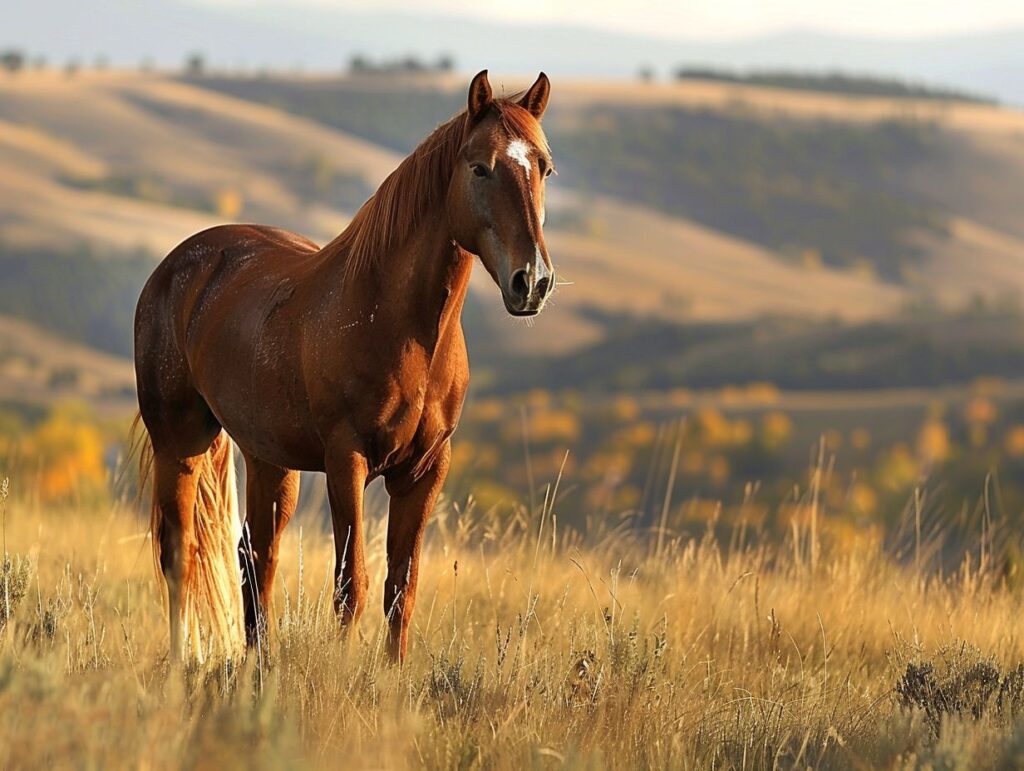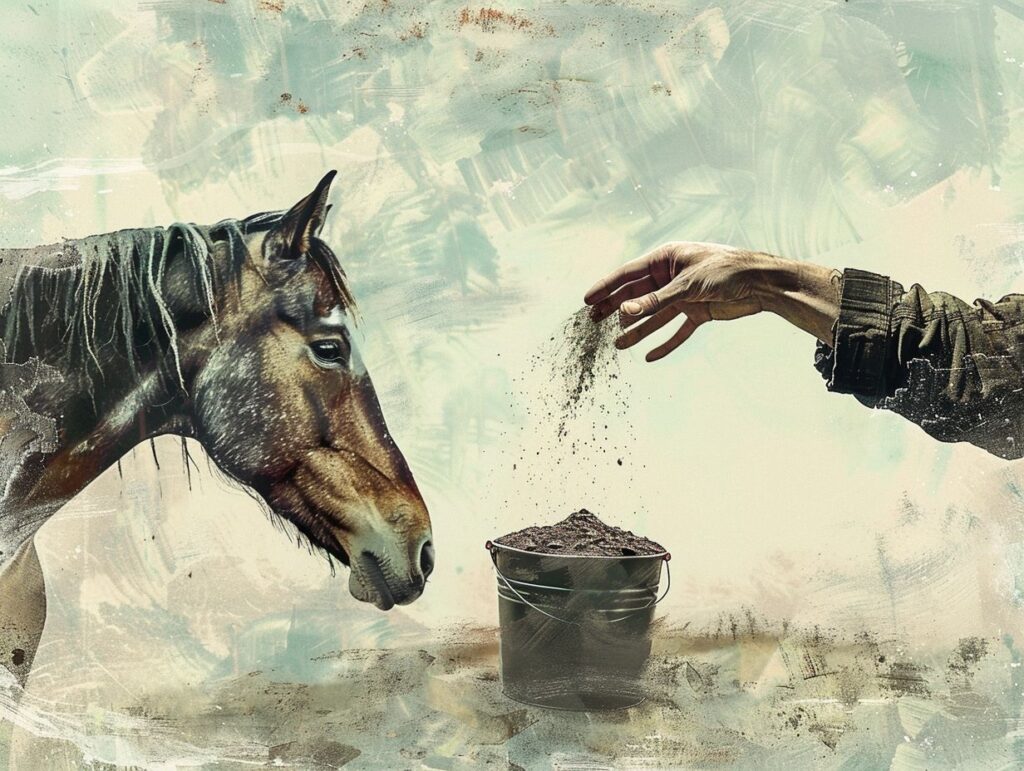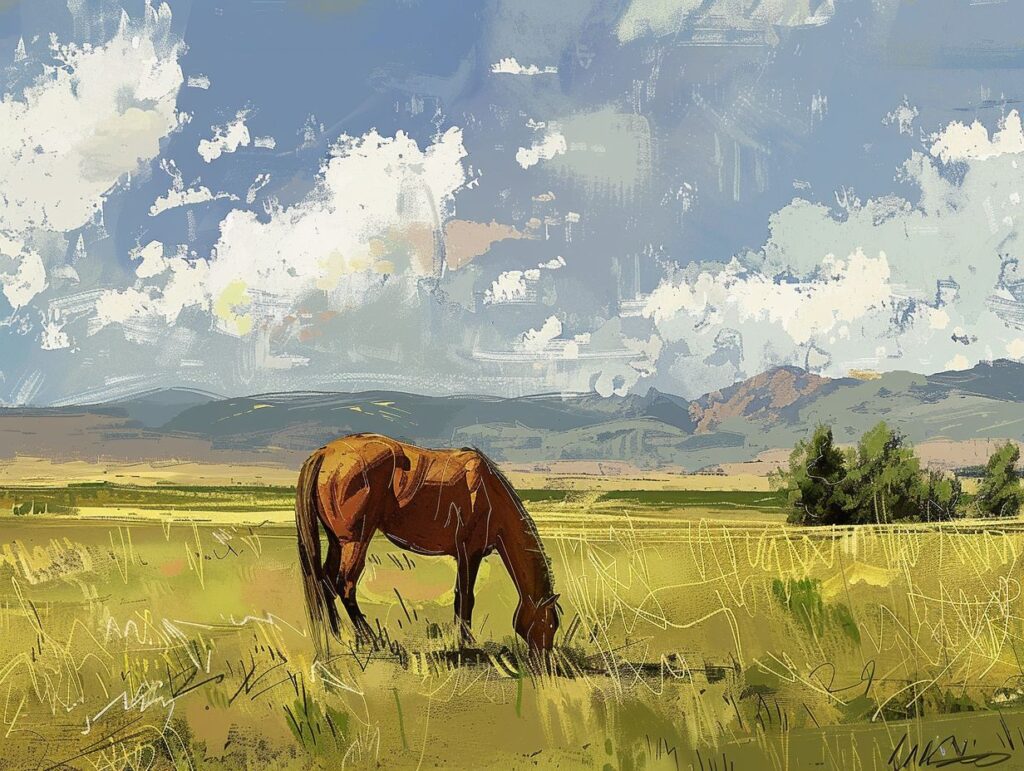As your equine companions age, maintaining their weight becomes a critical aspect of their overall health and well-being.
This article will explore the various factors that can affect weight gain in senior horses, as well as how to assess their diet to identify and address any nutritional deficiencies.
Feeding strategies, exercise and activity recommendations, common medical considerations, and the importance of consulting with a veterinarian for professional guidance will also be discussed.
Whether you’re a seasoned horse owner or new to caring for senior horses, this comprehensive guide will provide valuable insights to help you support your aging equine friend.
Understanding Senior Horses
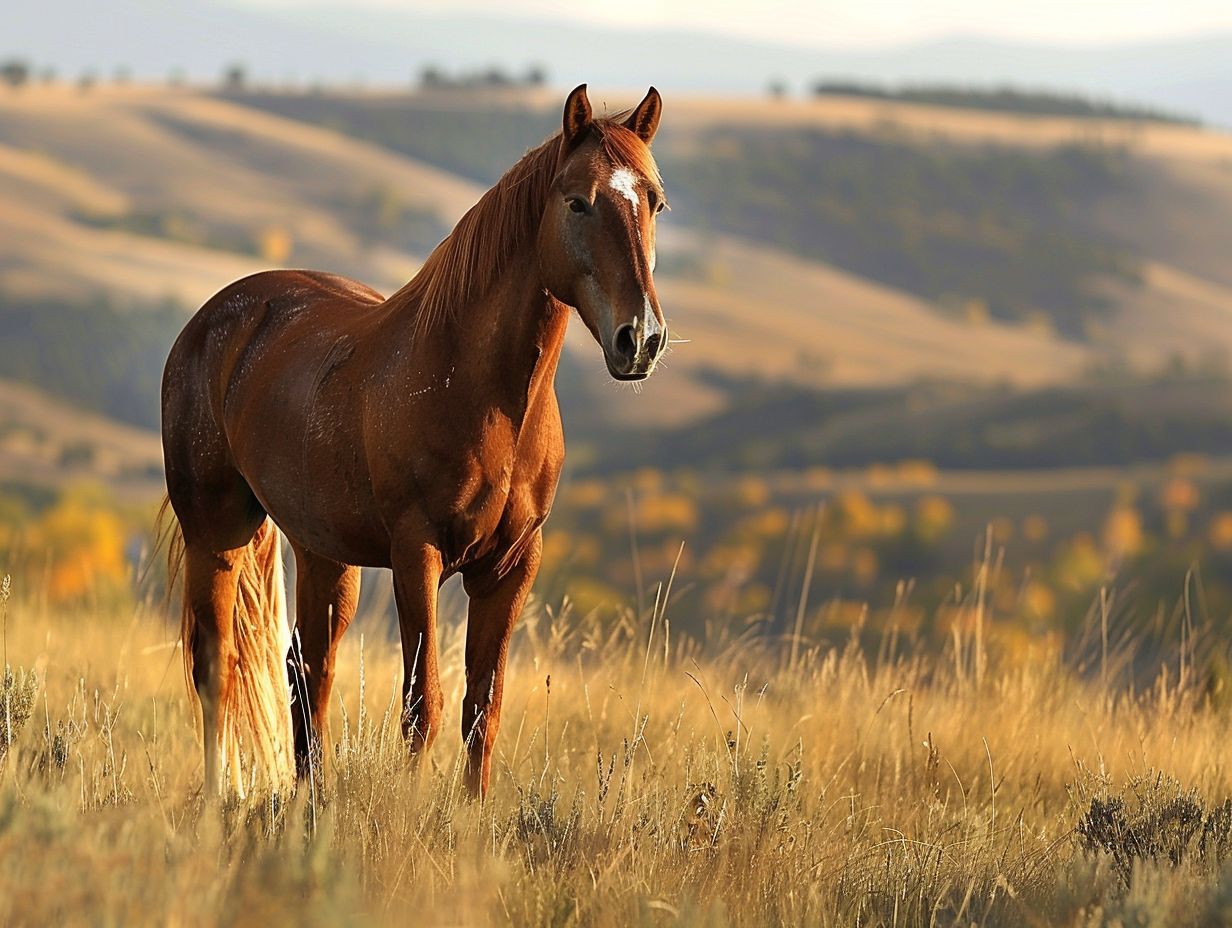
Having a deep understanding of senior horses is essential for their overall well-being and longevity. As horses age, they necessitate specialized care to ensure the maintenance of their health and vitality.
Factors that Affect Weight Gain
When considering the weight gain of senior horses, it is important to take into account various factors that can influence this aspect. By understanding these factors, you can effectively develop strategies to ensure these horses maintain their optimal body condition.
Metabolism is a key factor in how senior horses metabolize and use nutrients, which directly impacts their weight management. Dental health is another important consideration as it can affect their ability to chew and digest food properly, potentially leading to weight-related issues. Additionally, mobility issues, such as arthritis, can limit their exercise capacity and overall calorie expenditure, which may contribute to weight gain. Addressing these factors through proper nutrition, regular dental examinations, and customized exercise regimens is crucial for caregivers looking to help senior horses maintain a healthy body condition as they age.
Assessing the Horse’s Diet
Evaluating the horse’s diet is a critical aspect of senior horse care. Proper nutrition plays a key role in maintaining the health and vitality of aging equines.
Identifying Nutritional Deficiencies
Identifying Nutritional Deficiencies in senior horses is crucial for addressing their specific dietary needs. You must focus on key areas such as protein intake, digestive health, and appetite stimulation.
Adequate protein intake is essential for maintaining muscle mass and overall health in senior horses. It is imperative to ensure that their digestive system functions optimally, as aging can often lead to decreased efficiency in nutrient absorption. Implementing strategies to stimulate appetite, such as offering more frequent, smaller meals or adding palatable supplements to their feed, can help prevent nutritional deficiencies. Paying attention to these areas is essential for senior horse owners to support their equine companions’ well-being as they age.
Feeding Strategies for Senior Horses
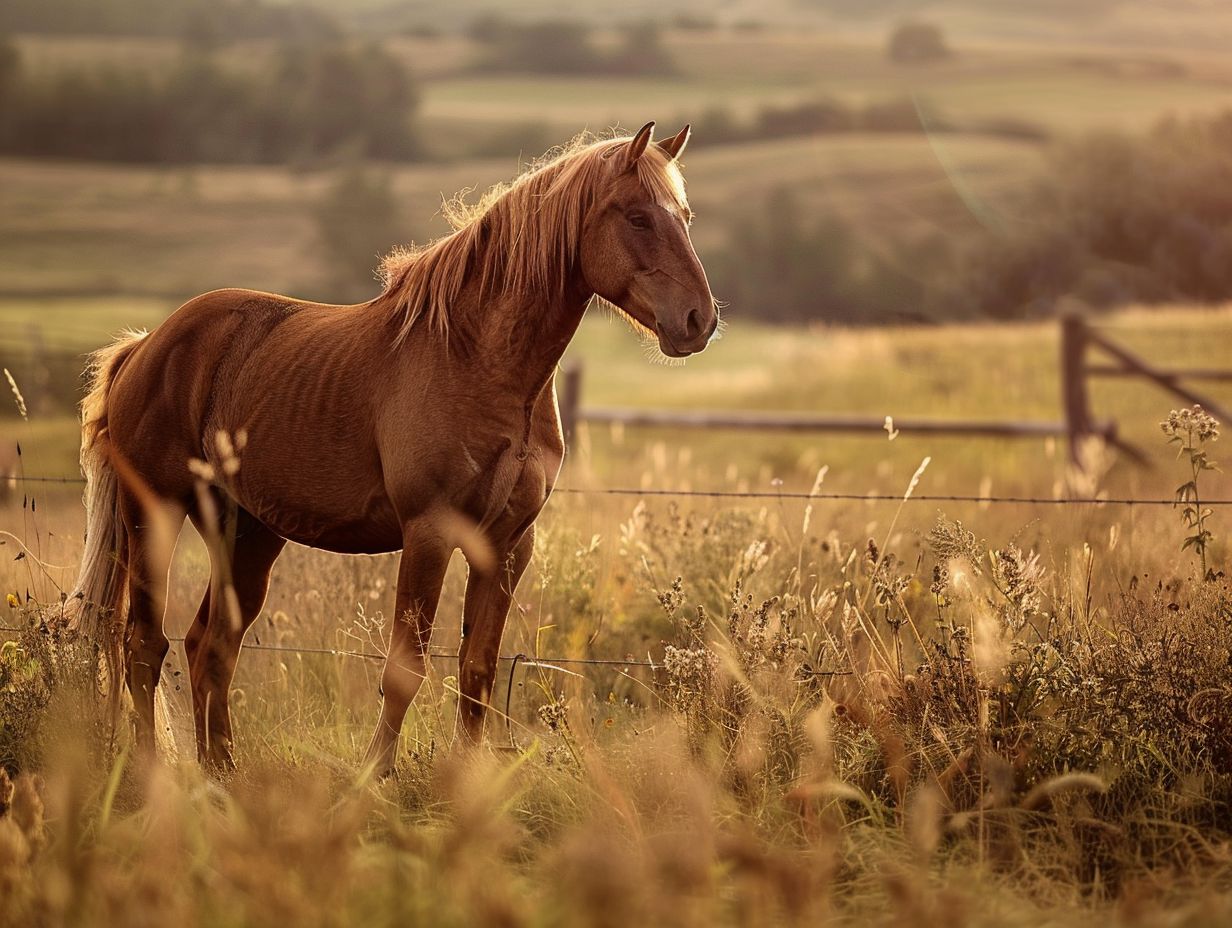
Implementing effective feeding strategies for senior horses is crucial for their overall well-being. A structured feeding plan customized to their individual needs can assist in maintaining optimal health.
Types of Feed and Supplements
Selecting the right types of feed and supplements is crucial for maintaining the well-being of senior horses. Proper hydration and targeted nutritional support are essential for their health.
As senior horses age, additional supplements like joint support formulas may be necessary to manage arthritis and ensure comfort during movement. Including feeds rich in fiber, such as beet pulp or hay cubes, can aid in improving digestion and preventing colic. Hydration is also a key factor in the overall health of senior equines, and methods like soaked hay or soaked pellets can help increase water intake.
By balancing these components effectively, not only can weight management be improved, but longevity and vitality in older horses can also be promoted.
Exercise and Activity for Senior Horses
Ensuring that senior horses engage in exercise and physical activity is essential for maintaining their mobility and muscle mass. Consistent movement plays a crucial role in fostering the overall health and well-being of aging equines.
Importance of Regular Movement
Regular movement is essential for meeting the energy requirements of senior horses and ensuring their well-being. Proper pasture management can provide valuable opportunities for exercise and grazing.
Encouraging senior equines to engage in daily movement not only aids in maintaining their physical health but also supports their mental well-being. Through consistent exercise and access to nutrient-rich pasture, aging horses can better regulate their energy levels and maintain a healthy weight. Pasture management plays a crucial role in ensuring that senior horses receive adequate nutrition while engaging in natural behaviors like grazing. By allowing them to move freely in a well-maintained pasture, owners can help seniors maintain their vitality and overall quality of life.
Medical Considerations
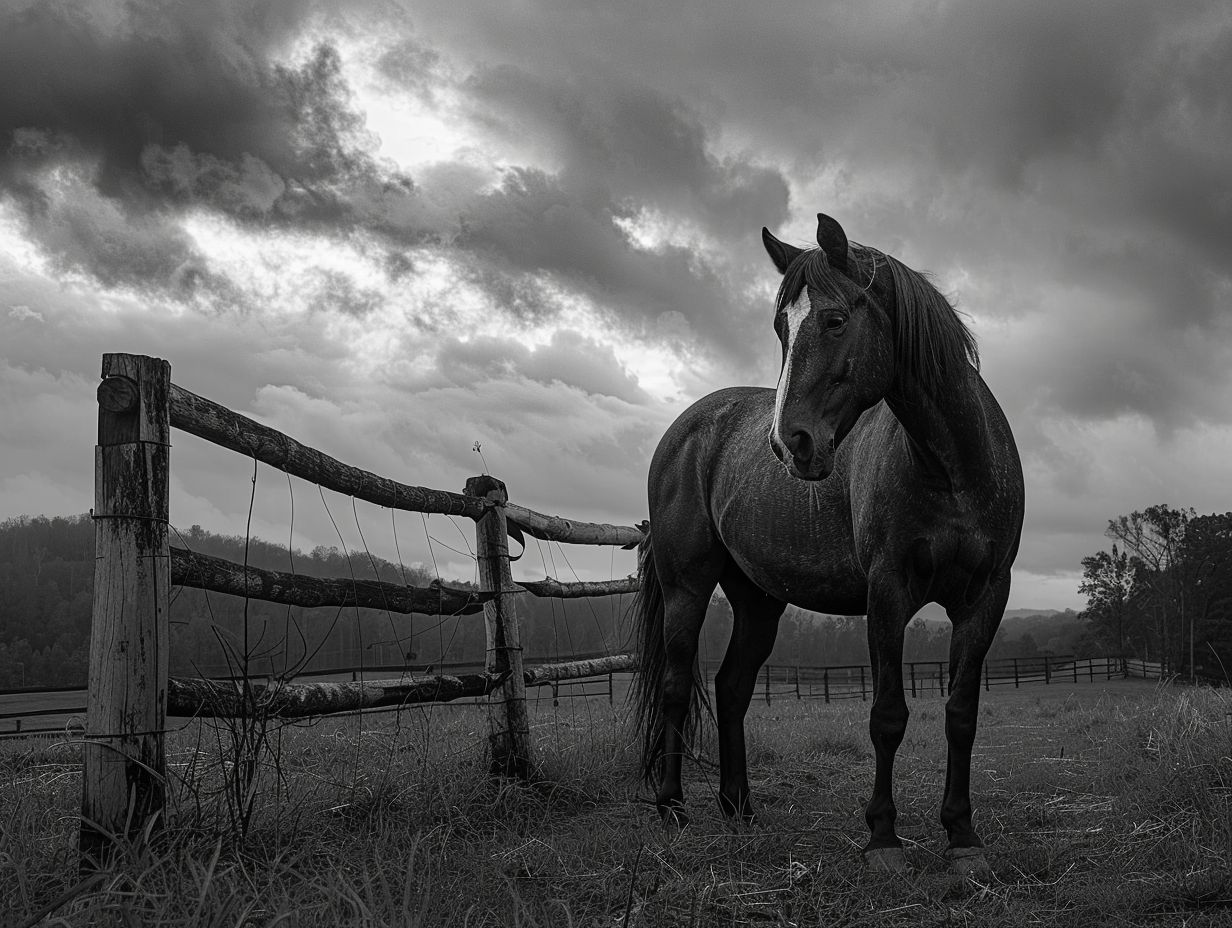
In terms of senior horses, you must prioritize medical considerations to maintain their health and comfort. It is crucial to consistently monitor their dental health and ensure they receive sufficient joint support to promote their overall well-being.
Health Issues that can Affect Weight Gain
Several health issues can significantly impact weight gain in senior horses. Understanding metabolic rates and seeking veterinary care are crucial steps in addressing these concerns.
As horses age, their metabolism naturally slows down, making it more challenging for them to maintain a healthy weight. Factors such as dental problems, gastrointestinal issues, and hormonal imbalances can further complicate weight management in senior equines.
It is essential for caretakers to work closely with veterinarians to develop personalized nutrition and exercise plans, as well as monitor metabolic health through regular check-ups and blood work. By proactively managing these health issues, you can help senior horses thrive and enjoy a comfortable quality of life in their golden years.
Consulting with a Veterinarian
Consulting with a veterinarian is essential for safeguarding the quality of life of senior horses. Veterinarians can offer valuable guidance on appetite stimulation and overall health management.
Importance of Professional Guidance
Implementing effective strategies to support the well-being and weight gain of senior horses requires professional guidance. Expert advice on dental health and nutritional requirements can significantly impact their quality of life.
In terms of senior horses, personalized nutritional strategies are crucial due to their evolving needs as they age. A professional assessment can identify the horse’s specific health conditions, including dental issues that may affect its ability to chew and digest food properly. By crafting a tailored diet plan to address these concerns, the horse can maintain a healthy weight and overall well-being.
Regular dental check-ups and cleanings are essential components of preventive care to ensure optimal oral health for senior horses. Neglecting dental health can lead to weight loss and discomfort, underscoring the importance of professional guidance in maintaining their well-being.
Frequently Asked Questions
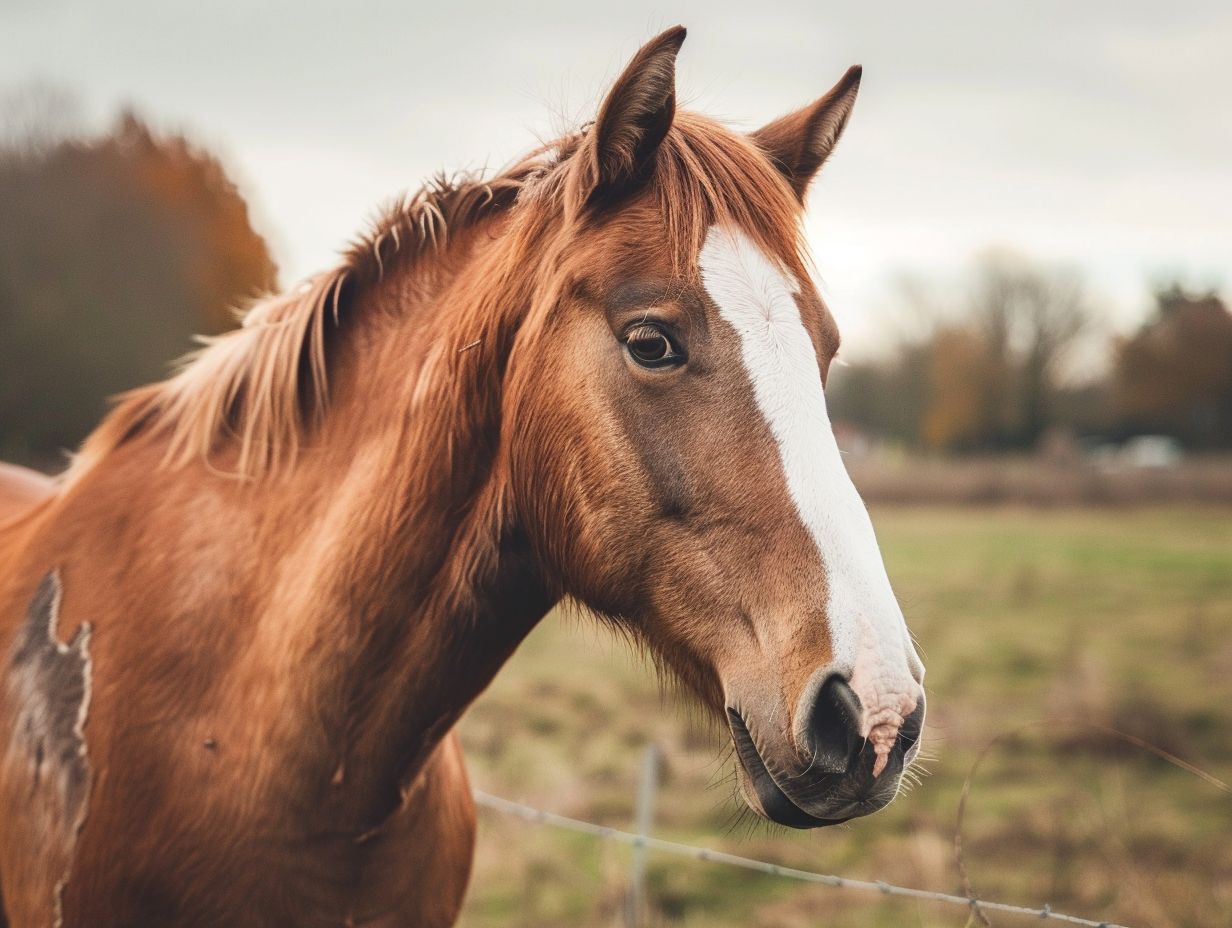
How can I put weight on a senior horse?
To put weight on a senior horse, it is important to first consult with your veterinarian to determine the underlying cause of their weight loss. Once any underlying health issues have been addressed, you can increase their calorie intake by adding more high-quality hay and/or a senior horse feed to their diet.
What should I look for in a senior horse feed?
When choosing a senior horse feed, look for one that is specifically formulated for older horses and is easily digestible. It should also contain high levels of fat and protein to help with weight gain and provide essential nutrients for overall health.
Can I use supplements to help my senior horse gain weight?
Yes, there are many weight-gain supplements available for senior horses. However, it is important to consult with your veterinarian before adding any supplements to your horse’s diet, as they may interact with any medications your horse may be taking.
How often should I feed my senior horse?
Senior horses may have difficulty chewing and digesting large meals, so it is recommended to feed them smaller meals more frequently throughout the day. This can also help prevent any digestive issues that may arise from overloading their digestive system with too much food at once.
Are there any other methods to help my senior horse gain weight?
Along with adjusting their diet, providing your senior horse with a stress-free and comfortable living environment is important for weight gain. This can include regular turnout, proper hoof care, and managing any dental issues that may affect their ability to eat.
How long will it take for my senior horse to gain weight?
The amount of time it takes for a senior horse to gain weight will vary depending on their individual health and circumstances. It is important to monitor their weight closely and make adjustments to their diet and lifestyle as needed. Remember to be patient and consult with your veterinarian for any concerns or issues.
